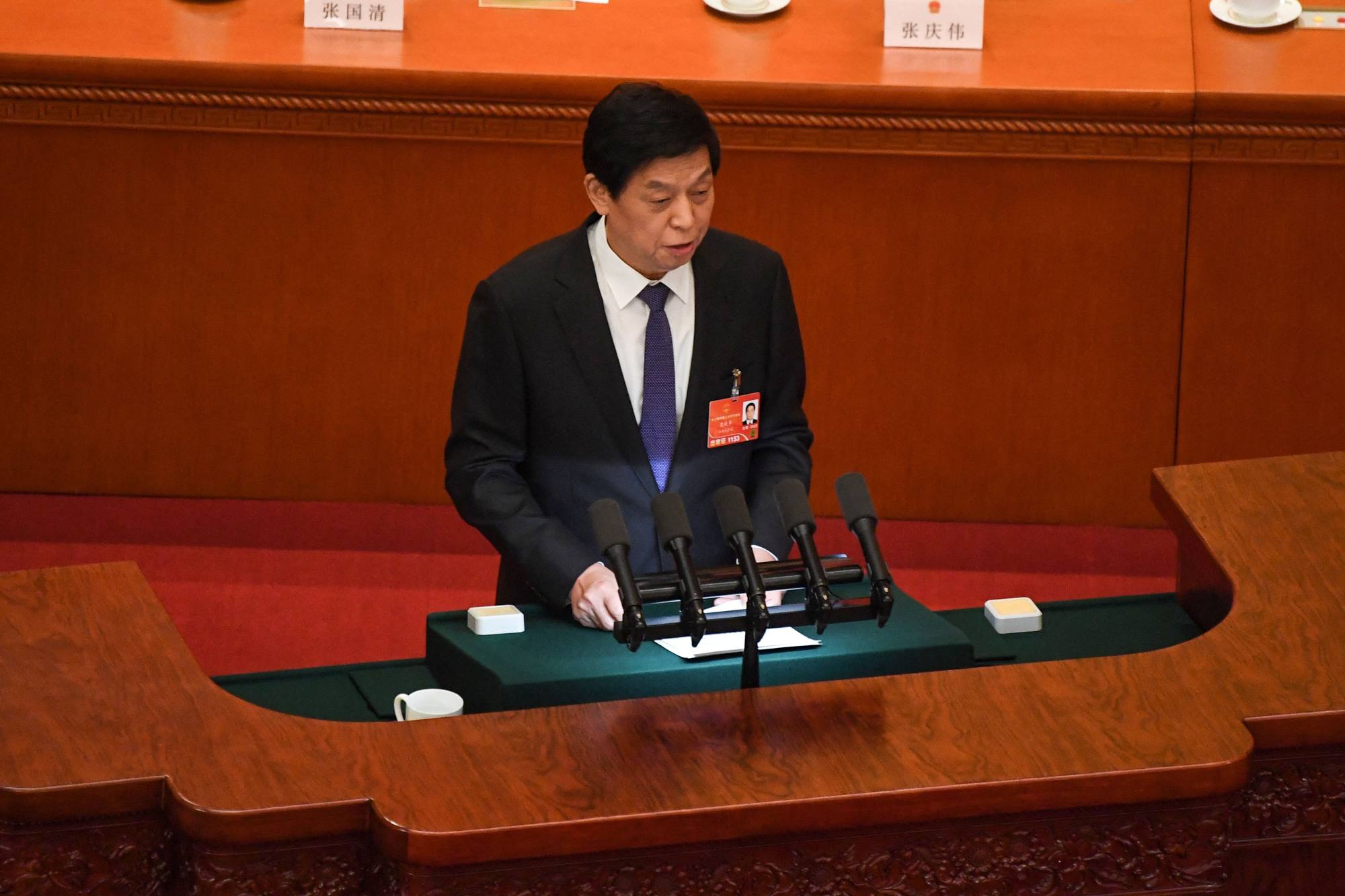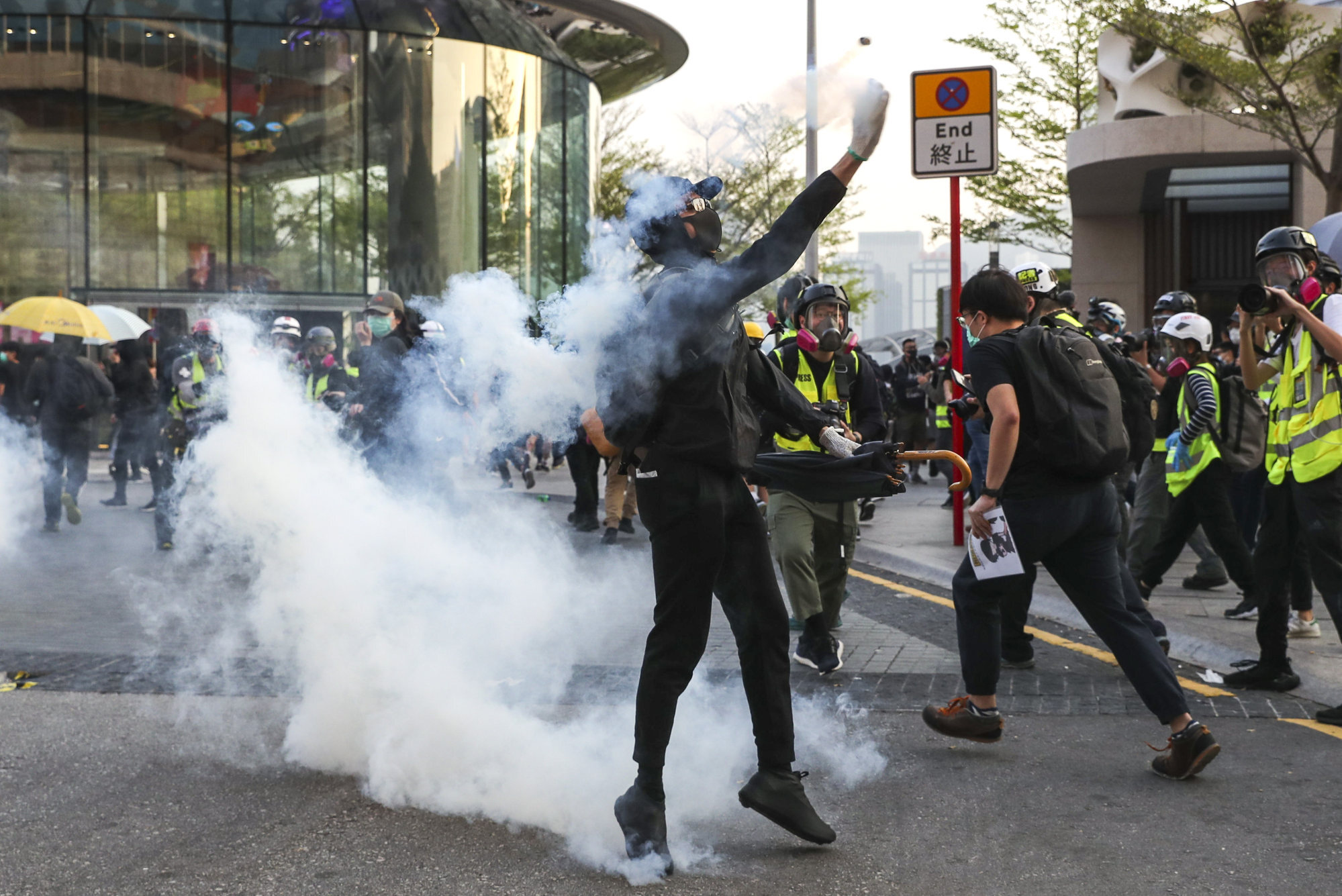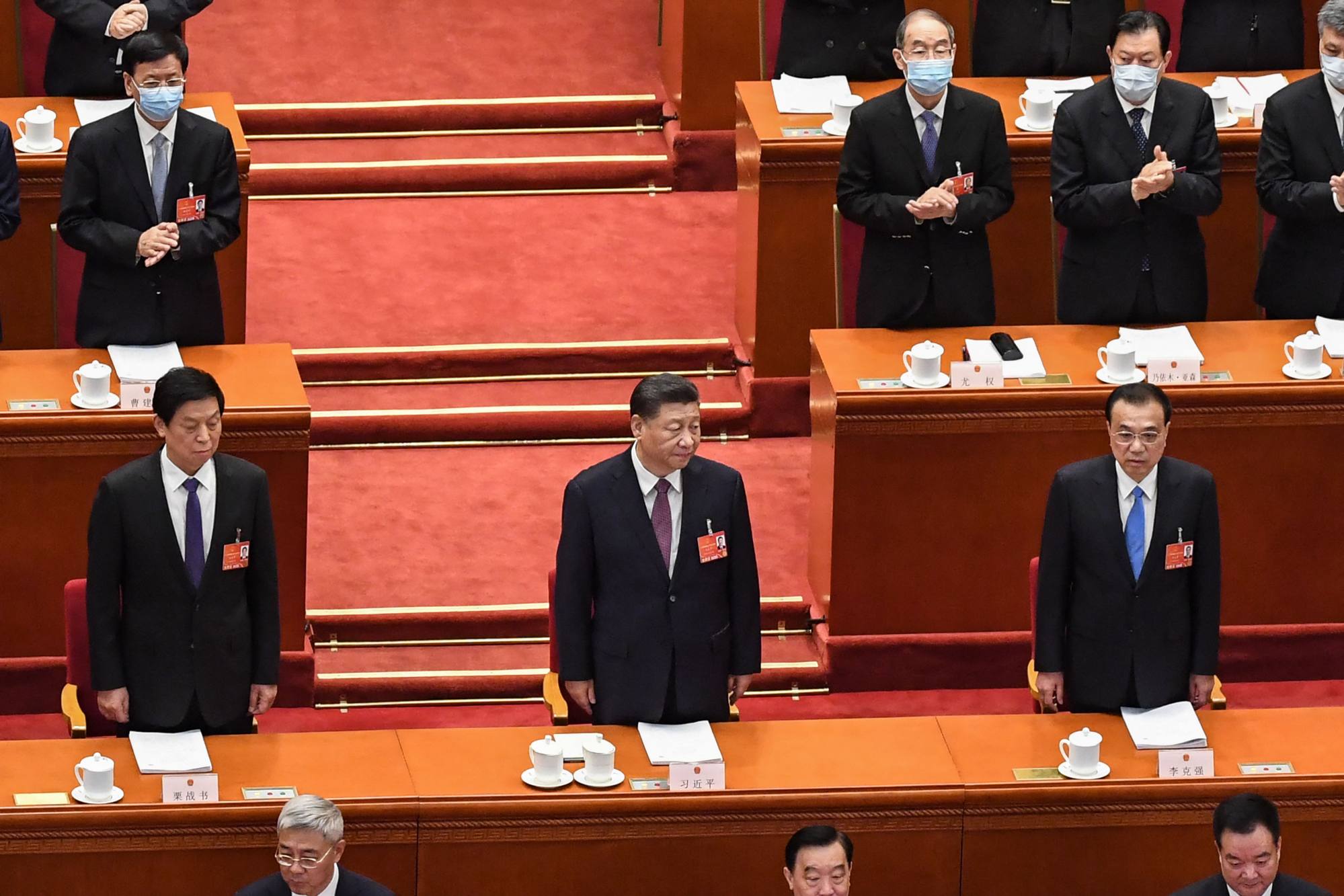
Beijing to ‘improve’ system for ruling Hong Kong, devise ‘legal weapons’ to counter foreign forces
- Li Zhanshu, chairman of the National People’s Congress, pledges to ‘implement the legal system and enforcement mechanism’ by which the city could safeguard national security
- He also lauded Beijing’s ‘patriots-only’ overhaul of Hong Kong’s electoral system as having ‘heralded a new age in which the city’s prosperity and stability is secured’
Beijing will “improve” the system by which it rules Hong Kong, while safeguarding national security and devising “legal weapons” for countering foreign forces, the head of China’s legislature has said.
Li Zhanshu, chairman of the National People’s Congress (NPC), vowed that the parliamentary body’s standing committee would “remain firm on key issues and political principles” as it planned for the use of “legal means in international struggle”.
The pledges were part of Li’s yearly report on the work of the NPC Standing Committee, presented during the legislature’s annual session in Beijing on Tuesday.

Analysts said the report underscored Beijing’s concerns about the need to supervise senior Hong Kong officials, nurture political talent and protect the city from being caught up in tensions between China and the West.
The subject of Hong Kong came up in the section of the report laying out what the standing committee would do in the coming year to implement the Chinese constitution.
“We will improve the system under which the central government exercises its comprehensive jurisdiction over the special administrative region, in accordance with the constitution and the Basic Law,” the report said, referring to the charters of China and Hong Kong, respectively.
“We will implement the legal system and enforcement mechanism under which the region safeguards national security, and improve the region’s electoral system.”
State leader tells Hong Kong politicians to aid government in fixing problems
In the section on foreign affairs, Li wrote: “We will remain firm on key political principles and matters of right and wrong. We will take the initiative to plan for legal weapons to struggle with foreign forces, and use legal means in international struggle.”
In his remarks presenting the report, Li looked back at the past year, saying the standing committee had explained the nation’s firm stance on issues involving Xinjiang, Tibet, Hong Kong, Taiwan, the pandemic and human rights.
“We engaged in struggles firmly against all kinds of activities that seek to contain, suppress, mess up or subvert [the nation],” he said.
Li also lauded Beijing’s “patriots-only” overhaul of Hong Kong’s electoral system last year as having “heralded a new age in which the city’s prosperity and stability is secured”.
Hong Kong’s Bauhinia think tank to close down after 16 years
He said the changes to Hong Kong’s political framework – which halved the number of directly elected legislators, created new vetting mechanisms for candidates and gave broad powers to a body stacked with Beijing loyalists – had formed a “democratic electoral system that suits the city’s legal status and actual situation”.
“The new electoral system allowed [the principle of] ‘patriots administering Hong Kong’ to be implemented firmly,” Li said.
“This was fundamental for Hong Kong to adopt high-quality governance with the constitution and the Basic Law as its basis, and truly implement ‘one country, two systems’.”
Critics have said the new system is designed to shut dissenting voices out of local politics, but senior Beijing and Hong Kong officials have defended the changes as necessary to avoid a repeat of the social unrest of 2019.

Li on Tuesday said the changes had improved Hong Kong’s “constitutional order and the rule of law”.
“The central government’s comprehensive jurisdiction and the special administrative region’s high degree of autonomy were also better implemented,” he added.
Since 2014, Beijing has asserted that while the city maintains judicial independence and autonomy on areas such as socio-economic policies, the central government enjoys “comprehensive jurisdiction” over it, especially on matters relating to the constitutional and political order, and national security.
For the first time ever on Saturday, Chinese Premier Li Keqiang said in his annual work report that the central government would “implement its comprehensive jurisdiction over Hong Kong, and firmly enforce the principle of ‘patriots administering Hong Kong’.”
The Hong Kong section of the premier’s annual work report has long been seen as an important indicator of the approach Beijing will take towards the city.
Tam Yiu-chung, Hong Kong’s sole delegate to the NPC Standing Committee, also revealed that improving the system by which Beijing ruled Hong Kong was included in the body’s plan for the coming year.
“But there are no details yet, maybe the issue is still being studied,” he said.

Lau Siu-kai, vice-president of the semi-official think tank the Chinese Association of Hong Kong and Macau Studies, noted that in 2019, Zhang Xiaoming, then the director of the State Council’s Hong Kong and Macau Affairs Office, wrote in an essay that Beijing’s comprehensive jurisdiction over Hong Kong included a wide range of powers.
“These include the power to appoint and remove the city’s principal officials, to supervise the city government’s work and to issue directives to the city leader. All these are areas where Beijing wants to lay down clearer procedures,” Lau said.
Ip Kwok-him, a deputy convenor of the Hong Kong delegation, dismissed the suggestion that Hong Kong’s semi-autonomous status could be undermined by such an overhaul.
“The ideas of ‘comprehensive jurisdiction’ and ‘high degree of autonomy’ go side by side,” he said. “There’s no issue of [the latter] being restricted or disappearing.”
Lau from the think tank said Li Zhanshu’s report on Tuesday also showed that for Beijing, legislative work on national security was an ongoing project, even after the central government’s imposition in 2020 of a sweeping law banning acts of terrorism, subversion, secession and collusion with foreign forces.
Hong Kong’s Security Bureau is currently planning public consultations starting in May on a local national security bill, which the city is required to pass under Article 23 of the Basic Law. The security law imposed by Beijing did not cover treason, theft of state secrets or local political groups’ ties with foreign entities.
Li Keqiang vows focus on Hong Kong’s prosperity through integration
“It’s the same for devising ‘legal weapons’ for countering foreign forces,” Lau said. “The United States has an armoury of laws to impose sanctions, and punitive measures can range from economic to cultural ones. Beijing knows that it is weak on this and more tools are needed.”
Song Sio-chong, a professor at Shenzhen University’s Hong Kong and Macau Basic Law research centre, pointed to Beijing’s new anti-sanctions law, rolled out last June to provide the mainland with legal grounds to retaliate against actions by foreign states.
It had planned to extend the law to Hong Kong, but unexpectedly postponed the move last August. “It was partly due to concerns about the jurisdiction of the city’s judges, many of whom are foreigners,” Song said.
The elements of Tuesday’s report on improving Hong Kong’s electoral system, Song said, were likely tied to Beijing’s concerns about the lack of political talent in the city.
Hong Kong delegates urged to share ideas on Covid-19 fight, patriotic education for youth
“The [Legislative Council] is dominated by the pro-establishment camp, but a system to train capable politicians has yet to emerge,” he said.
Lau, however, said he believed Li was referring to the NPC’s plan to amend how the city’s 36 delegates to the national legislature were elected.
In 2017, the delegates were elected by an 1,800-strong group of current and former Election Committee members, many of whom were opposition figures at the time.
Since last year’s electoral overhaul, however, the opposition’s presence on the committee has been effectively eradicated, and a resolution expected to be endorsed by the NPC on Friday would limit voting to current members of the body in the next poll, slated for the end of this year.
Meanwhile, Hong Kong delegation deputy Ip Kwok-him also confirmed that as his group met Chinese Vice-Premier Han Zheng on Monday, Wang Linggui, an expert in national security and international relations, also attended the meeting as a deputy director of the State Council’s Hong Kong and Macau Affairs Office.
Analysts previously said Wang’s appointment indicated the central government’s priorities for the city, which has found itself entangled in recent years in geopolitical tensions between China and the West.
But Ip and Tam said as they did not have the opportunity to talk to Wang yet, they could not comment on his appointment.

